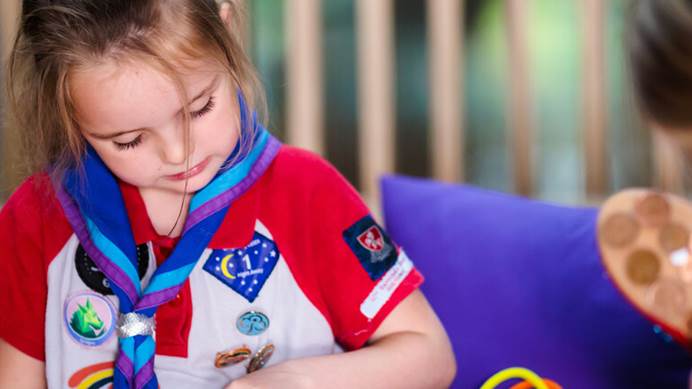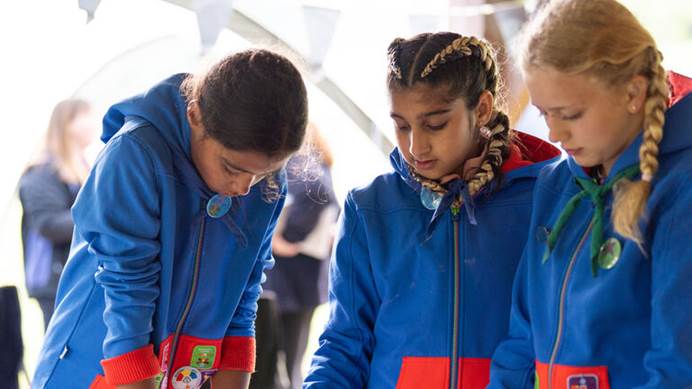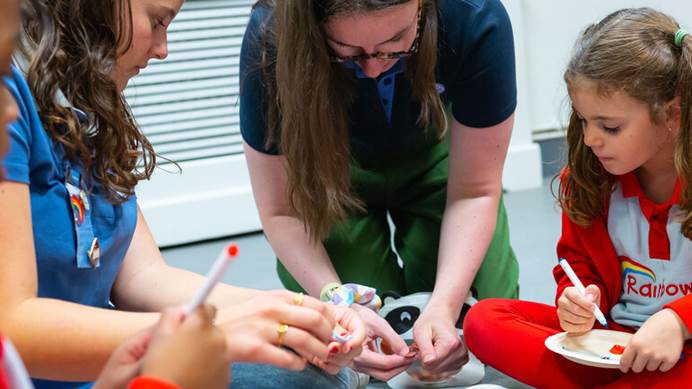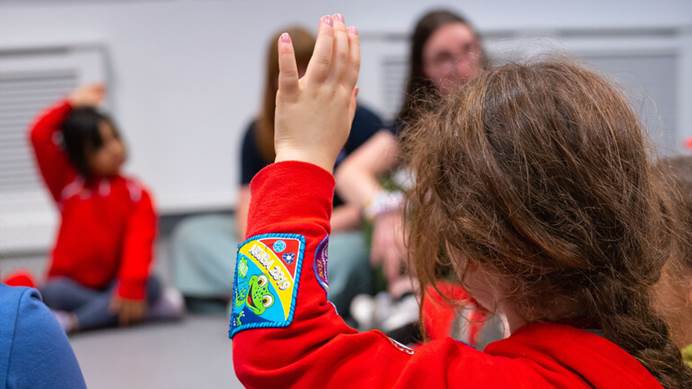Setting and following a budget
This part of our finance procedures explains how to set and follow a budget
This guidance is part of our finance procedures.
Last updated: 6 November 2024
A budget is an estimated plan for the money you need for your unit and other guiding activities.
Ahead of your financial year, get together with your leadership team to put together a budget for the year ahead.
Making this yearly budget together will help you plan effectively and provide assurance that you have enough money to do everything you want in your unit.
Welcome to our guide to budgeting for your unit.
We’ve pulled together these top tips because we want planning and managing your budget to be stress free and straightforward. That way, you’ll have more time to focus on the fun stuff!
So, first things first, why budget? The main reason is that it allows you to make sure you don’t run out of money during the year.
With a budget, you always know how much money you need for things like rent and insurance, and you have some set aside for unexpected costs.
A budget will also help you set your unit’s membership fees. (or at a district level and above, the ‘levy’).
The best place to start is by looking back at how much money was spent last year. Or if you’re a new unit, get in touch with some other local leaders to see what they spent.
Every unit is different but looking at past spending will paint a rough picture of how much money you’ll need.
Next, you’ll need to do three things.
- Make a note of your fixed expenses. These are things that won’t change or that you know you’ll need to pay. Like rent, annual subscriptions, and contents and buildings insurance.
- Work out your unit running costs. These could include badges, new resources, Leader training fees or materials for activities.
- Consider your general expenses; everything from postage and mobiles to stationery, and transport costs. Transport costs are especially important because we don’t want any volunteers to be left out of pocket.
Once you’ve got an approximate figure for each of these areas, add them up into a grand total.
Then, simply divide that amount by the number of girls in your unit. Whatever this comes to is the minimum you need to charge your unit members.
Finally, you need to add some reserves. Reserves aren’t about making a profit, but about making sure you can cover any unexpected costs.
We recommend between three to six months of running costs. If you have money left over from previous years, you can factor that into your reserves.
For example, if you already have two months worth of running costs left over, you’ll only need to add between one and three months worth of running costs. As long as you have a cushion of between three to six months, you should be just fine. Once you’ve added the reserves, that’s your yearly budget set.
Now all you need to do is keep a record of your budget and update it throughout the year as you spend money. Sometimes you may find costs are lower than expected but some things may be more expensive. Keeping your original budget updated with the actual costs will give you peace of mind that all your costs are accounted for and under control.
One last thing - sometimes, not every girl can pay the full subscription or the number of girls in your unit may go down. This is why a reserve is so helpful. However, if you need more funding, think about other ways of making money for your unit like gift aid, grants from HQ or other charities, and fundraising. Just don’t rely only on these as you can never guarantee how much money they’ll bring in and often they are just one off. For more information on gift aid, grants, and fundraising, visit our website.
Thanks for watching and happy budgeting!
What costs you need to cover
Your budget needs to include all your income – money that’s paid to the unit – and your expenses – the things your unit needs to pay for. When you're drawing up a budget, make sure you think about your income, based on how many members you expect to have, and your expenses. These include:
- The annual subscriptions (membership fees) for your unit, which are payable to HQ and other levels.
- Unit running costs, including materials for activities, badges and badge books, any training fees or new resources.
- Meeting expenses. This will include costs for your venue, including things like rent, lighting, heating, internet or other utility bills. It may also include extra equipment and buildings and contents insurance.
- General expenses. Budget some money for things like postage, stationery, volunteer uniform, volunteer training and travel expenses.
- Irregular or one-off costs, such as for building maintenance. You may not need to spend money regularly, or even yearly on this, but it can be expensive. If it’s included in your budget every year, you’ll have saved up enough to cover it when the time comes.
- Price increases. Make sure to check if prices for your bills, utilities or general expenses have changed since last year. You may need to spend more of your budget on these things compared to the previous year.
Special projects, such as camps or holidays, days out or trips to the pantomime, should be budgeted for separately. This is because not everyone will choose to join these activities. This income should be shown separately in your annual accounts, but doesn’t need a separate bank account.
Download our helpful guidance on budgeting for special projects (PDF) to help you fundraise.
Planning how you’ll cover costs
Download a simple unit budget for subs (Excel, automatic download, 12.3 KB).
Once you know how much money you need for your costs, you can work out where your income needs to come from. How much will be covered by:
- Regular subscriptions from members. Think about how regularly you want to charge parents and carers for subscriptions and factor this in when planning to spend funds.
- Fundraising income.
- Gift Aid. You can boost your unit’s income by claiming Gift Aid on young members’ subscriptions and donations you receive. This is only applicable if the person donating the money has signed a Gift Aid declaration form and pays income tax. For more information, read our guidance on Gift Aid.
Reserves
A reserve – sometimes known as a rainy day pot - is an amount of money that you don’t plan to spend in the current year. It stays in your account to strengthen your financial position and helps in case of unexpected costs or reduced income.
A reserve is always needed in case of unplanned costs or if your income isn’t as much as you expected. A good starting point would be to have an amount equal to 3 to 6 months of running costs as your reserves, or enough to cover the subs for everyone in your unit.
If you're saving up to buy something for the unit, like new camping equipment, this doesn’t count towards your reserve amount.
Don’t aim to have excess amounts of money that you don’t plan to spend. If your reserves are higher than they need to be, consider ways to reduce this. Make sure that any increase in spending is for the benefit of the unit. Could you invest in some new equipment for your unit, or subsidise the cost of subscriptions or uniforms for the young members?
If you don’t have a reserve, your yearly budget is a great tool for starting to build one.
Extra support
If you haven’t managed a budget or worked on simple accounts before, you can speak to your local commissioner or county training team to arrange training for you. You can find an introduction to managing unit accounts on the learning platform.
You should also read the finance policy and the rest of the finance procedures to make sure you understand your financial responsibilities and how to carry them out. If managing your unit or level finances just isn’t right for you, speak to your local commissioner about finding someone else, such as a unit administrator, to manage the day-to-day running of the finances.
Even with careful planning, sometimes things go wrong. Check out our guidance on dealing with financial challenges.
What do I need to do as a commissioner?
You could hold a local meeting to talk about:
- How much each unit charges for subs and how often parents or carers pay.
- How much each unit is paying for rent at their venue.
- The annual subscription payment.
- The costs of buying badges, books and other equipment.
- Grants and funding.
- Gift Aid.
As a commissioner, this will help you understand the financial position of each unit, and it will help leaders to think about different ideas for their budgets.






